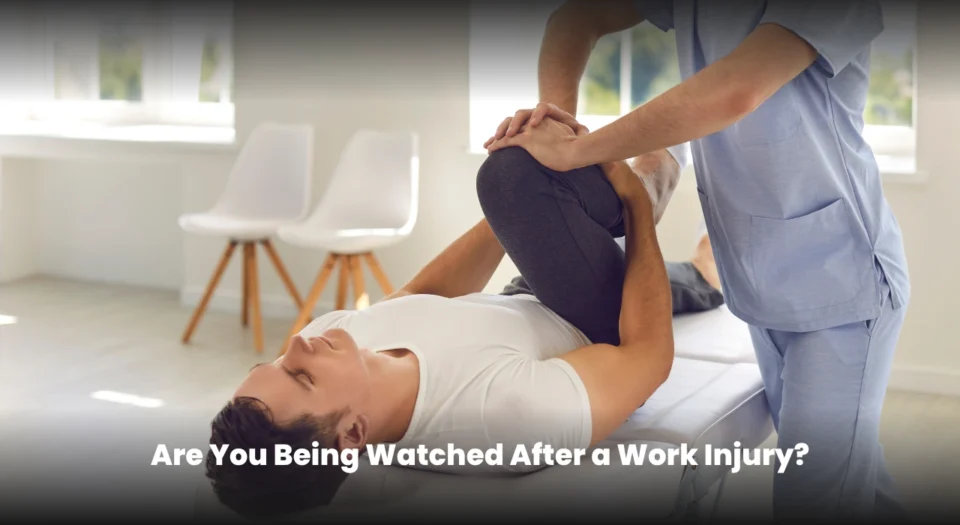Atlanta, GA, stands as one of the busiest employment hubs in the Southeast, home to over 3.8 million workers under Georgia’s statewide workers’ compensation system. In 2023 alone, Georgia saw around 27,560 indemnity claims and roughly 81,426 medical-only claims, amounting to nearly $79 million in indemnity benefits and $706 million in medical payments statewide. Approximately 78,000 workplace injuries and illnesses are reported annually in Georgia’s private sector, with more than 41,000 classified as severe, often requiring time off or job restrictions. Given Atlanta’s scale and industry mix, especially in logistics, construction, and manufacturing, workers here face a real risk of injury, and a strong workers’ compensation lawyer may be essential when injuries occur.
If you’re recovering from a work injury in Atlanta, GA, you may find yourself asking: Is someone watching your every move? The possibility of surveillance by employers or insurers can change the narrative around fault, recovery, and compensation. Understanding these dynamics is critical. Atlanta workers’ comp lawyers are increasingly seeing cases where surveillance footage, social media activity, or even monitoring of medical visits ends up influencing claim outcomes. As you review your rights and responsibilities, knowing what “being watched” means and when legal help becomes necessary can make all the difference.
Why Surveillance Occurs
Companies routinely use surveillance to assess the credibility of injury claims. They take particular steps to compensate only genuine claims to avoid fraud cases and other exploitations. Monitoring may be done through video surveillance, checking social media platforms, or hiring investigators. Both companies and insurers view this as essential to protecting their interests.
Methods of Surveillance
Surveillance can take many forms. One common tactic is video surveillance, in which investigators videotape claimants in public. Recording a person’s life gives insight into whether they can actually do what they say they can. Another one of their tactics is social media scrutiny. Photos, posts, or status updates can offer glimpses of a person’s lifestyle or fitness level.
Legal Aspects
As employees, we all need to know if we have any rights around surveillance! The law in this regard is more interesting: yes, monitoring people in public places is legal, but there are limits. Inside a home and other private areas are generally prohibited. Understanding these legal parameters helps employees know when there is any surveillance overreach so they can address it adequately. At the same time, talking to a lawyer may simplify things and help protect you.
Impact on Claimants
In this world, it can seem like one is constantly under a microscope or under a lot of pressure, which may create anxiety and, hence, affect mental health. Workers may hesitate to take action, wondering how it will be perceived. Still, being truthful and consistent with reported injuries is imperative despite these challenges. Being transparent about your daily activities reinforces credibility.
Steps to Take
Claimants can proactively respond to the situation by managing it. Keeping a record of medical visits and prescribed treatments is vital. These things show a dedication to healing. It is always better to be safe than sorry when it comes to social media as well. Giving out little health or activity information can avoid misunderstandings.
Communicating With Employers
Transparency also helps in building trust and clarity with employers. Talking about worries surrounding surveillance and asking for reassurances regarding privacy can also assist. Seeking feedback from employers is always good. It provides insight into policies and the rationale behind surveillance. Opening this conversation can ease anxieties and create a more compassionate atmosphere.
The Role of Legal Advice
Hiring a top-rated lawyer is beneficial, as they can provide helpful advice and guidance. Having legal experts explain rights and obligations helps to ensure that injured workers, who may not be literate or as versed in the law, are well-informed of their rights. They can also help deal with any subsequent legal disputes resulting from surveillance and their actions. An advocate can enable claimants, which can make a difference in the approach to their claim.
Maintaining Privacy
There’s concern about surveillance and privacy. However, there are ways for these workers to protect themselves. It is a good idea to be careful when browsing and to protect personal accounts. Separating personal and professional lives can also prevent unnecessary scrutiny.
Wrapping Up
Knowing they may be monitored post-workplace injury will also prepare workers to worry less about getting answers if they know they are being watched. With the knowledge of their rights, communication with their employer, and the assistance of a lawyer if necessary, they can feel more secure and at peace with themselves during their recovery.

